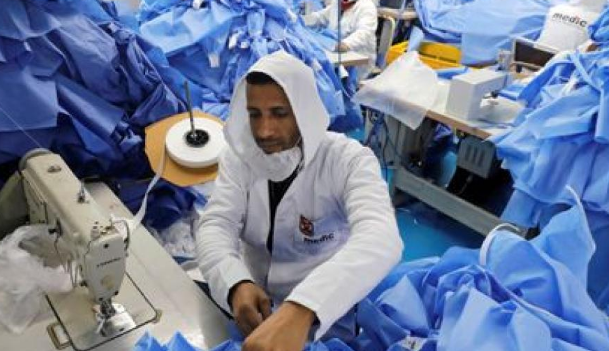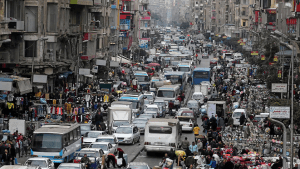Egypt has ramped up efforts to fight the coronavirus, ordering manufacturers to channel medical protective equipment to public hospitals and announcing 1 billion Egyptian pounds ($64 million) in extra funding for its health services.
But the capacity of the public health system to cope with an acceleration of cases in the country of 100 million, where population density could increase the chances of quick contagion, remains a concern, some of its doctors say.
Decades of under investment left many of Egypt’s public hospitals dependent on donations for some services and supplies. Poor quality in primary healthcare facilities and public hospitals means that in recent years more than half of patients have sought private medical care, according to the World Bank.
At Boulaq public hospital in Cairo, the first major renovation for decades began a few months ago after a social media campaign, two medics there said. As other public hospitals are cordoned off to create isolation wards, those like Boulaq that remain open for normal services are feeling the strain.
“Things are not good. We feel the pressure increasing every day,” said one doctor, who asked not to be named. “We are suffering from years of accumulating (problems). We have shortages of medical equipment, devices and supply.”
Egypt had allocated 125 billion pounds from its 1.6 trillion pound 2019/20 budget to the health sector. The health minister told parliament in January that 150 million Egyptian pounds had been assigned for renovations at Boulaq, but more was needed, according to state newspaper Al-Ahram.
There was no immediate response from the health ministry to calls seeking comment on Egypt’s coronavirus preparedness.
More Testing Stations
Egypt is not alone in feeling the strain of the coronavirus, which has killed more than 46 000 people worldwide. From Japan to Italy, Spain, Britain and the United States, health experts have accused governments of initially downplaying the pandemic or failing to take swift enough action.
The World Health Organisation (WHO) has praised Egypt’s efforts but has also said they can be scaled up in some areas.
Jean Jabbour, head of the WHO’s Egypt office, said the government’s response had so far been prompt. There are 2,000 beds allocated for COVID-19 treatment, half of which are in intensive care units and 600 with ventilators, while 400 000 test kits have been delivered, his office told Reuters.
“This is ready to increase … whenever there is a surge in the number of cases of COVID-19,” Jabbour said.
Egypt reported its first coronavirus case on February 14. The number of confirmed cases has risen steadily to 779, including 52 deaths.
There are about 50 coronavirus testing centres, up from one at the start of the outbreak, and eight isolation and treatment hospitals. Medical staff have received the promise of a modest bonus from the president.
For the moment, officials say they are able to contain the virus by testing, tracing, isolation and treatment, along with restrictive measures including a nighttime curfew and the closure of mosques, schools and tourist sites.
But once the number of cases surpasses 1 000, the tracing would become harder, the health minister has said.
“If we’re very lucky we can shut down transmission like they did in China. If we’re not so lucky we can delay at least the stage three or community-wide transmission,” WHO official Yvan Hutin said at a press briefing on Monday.






